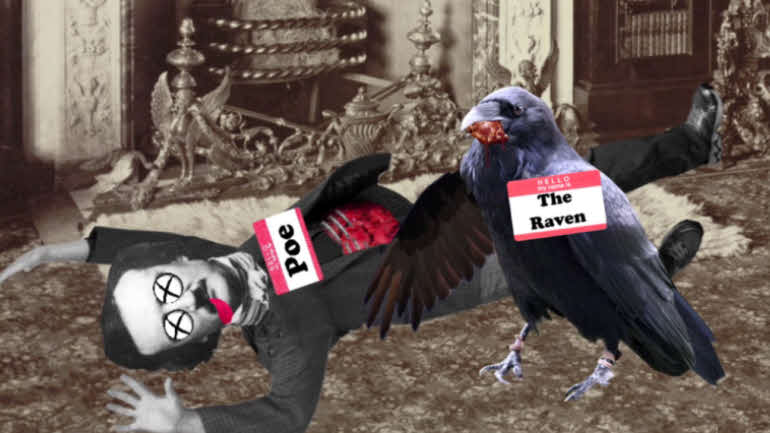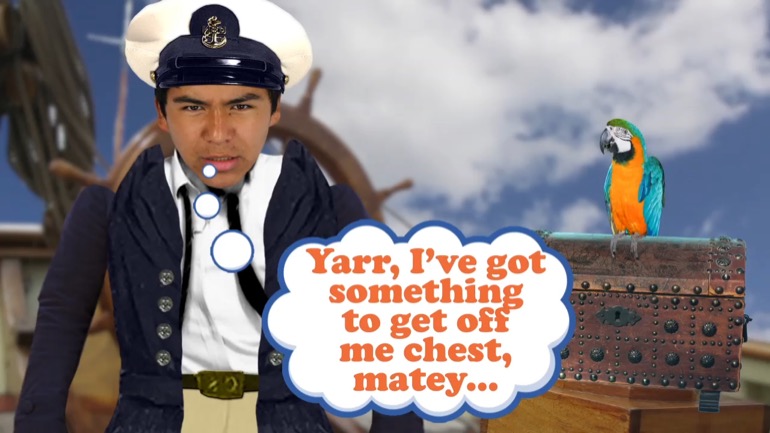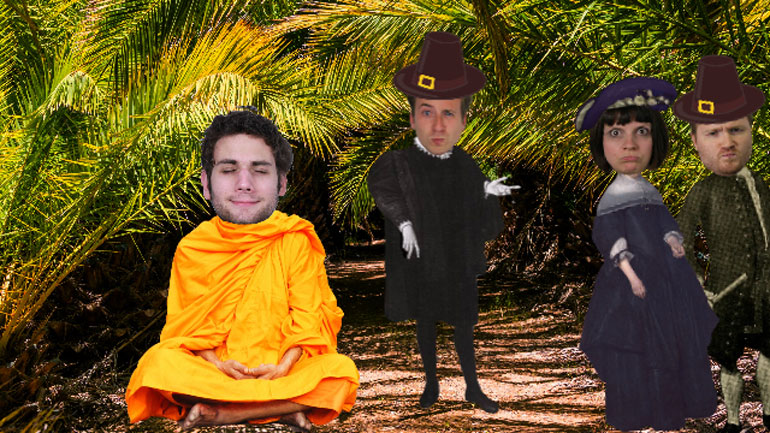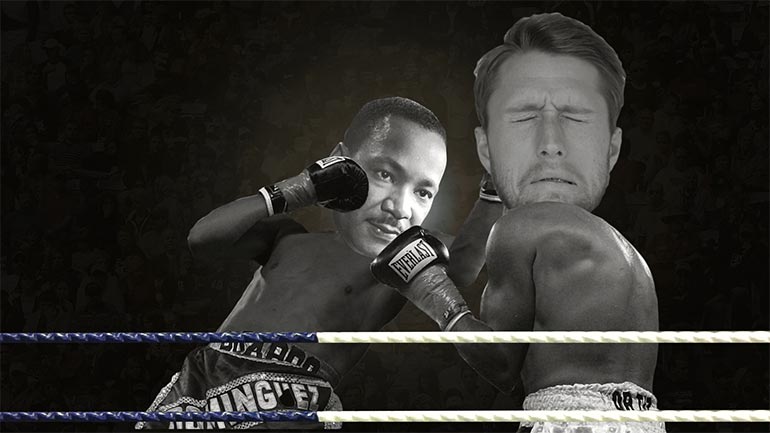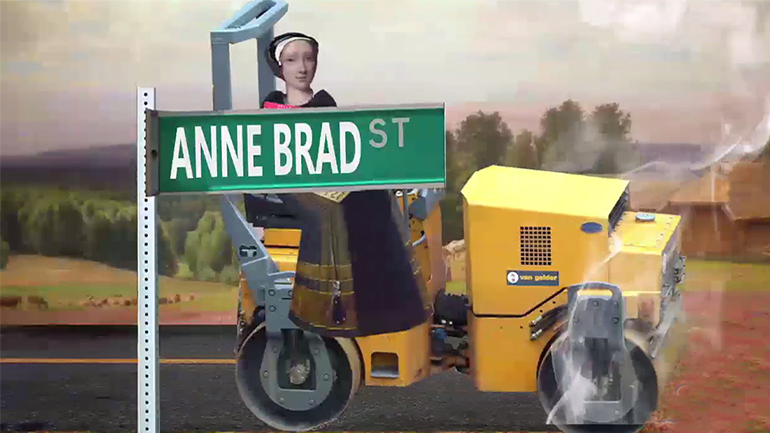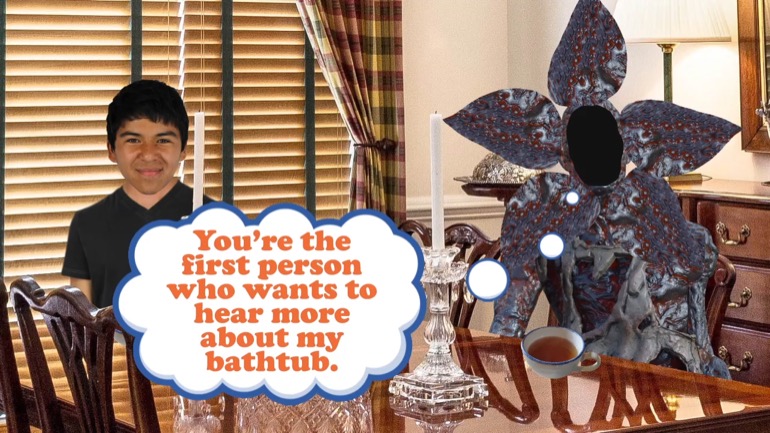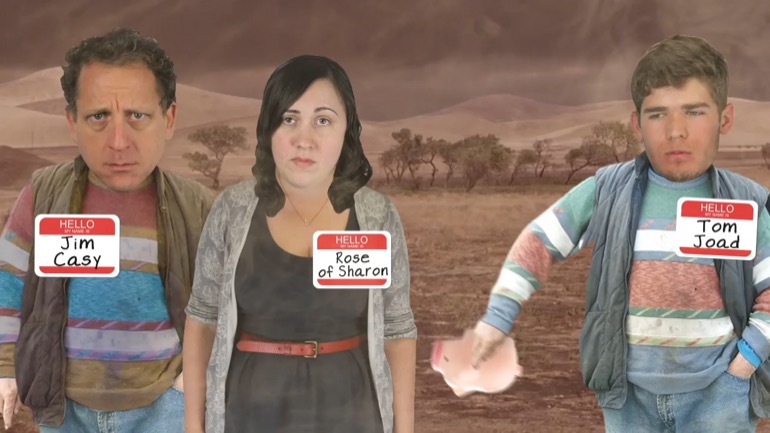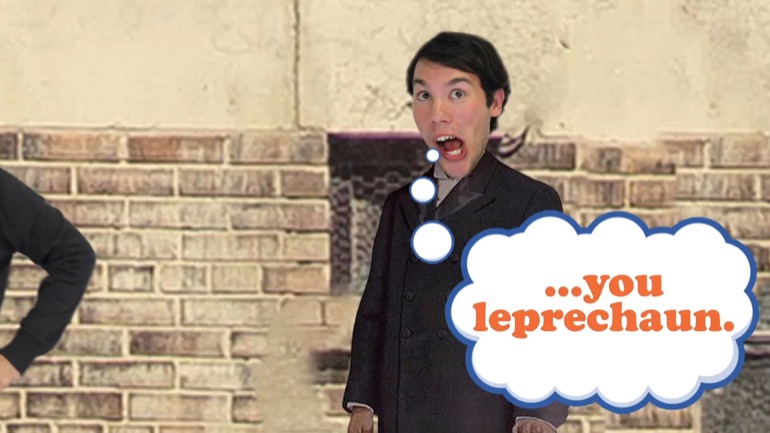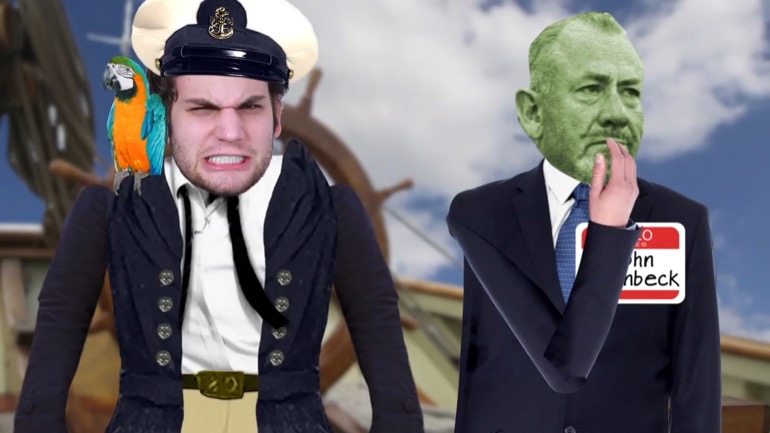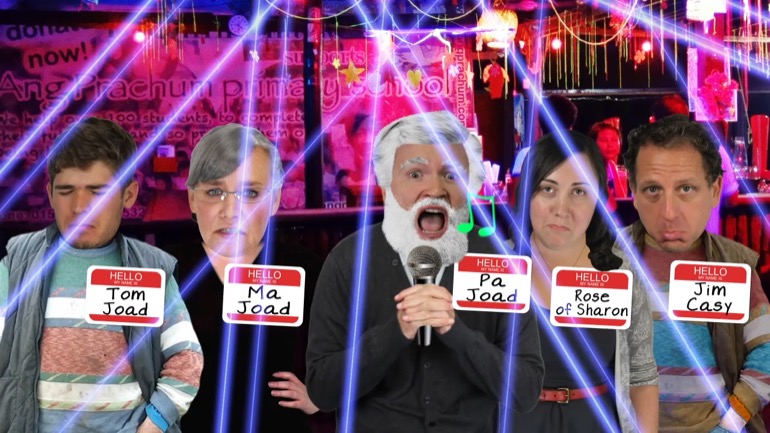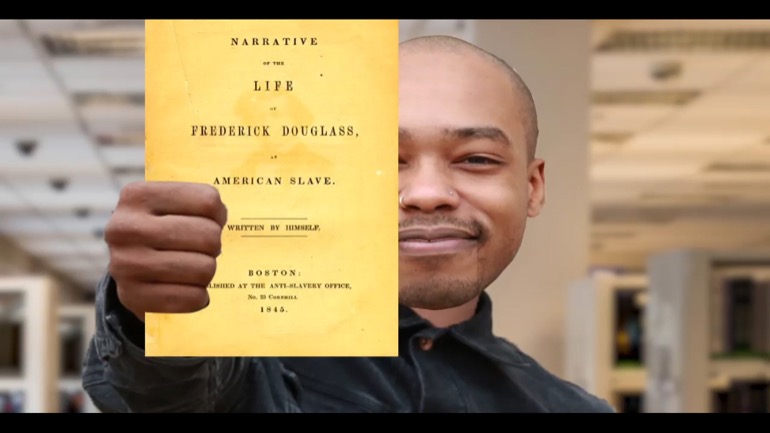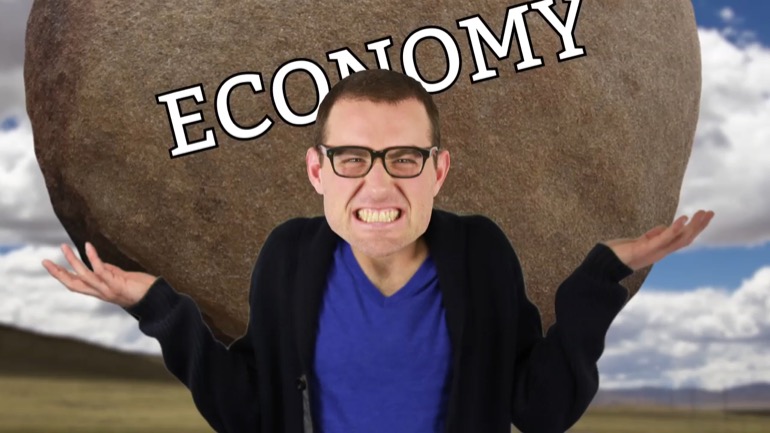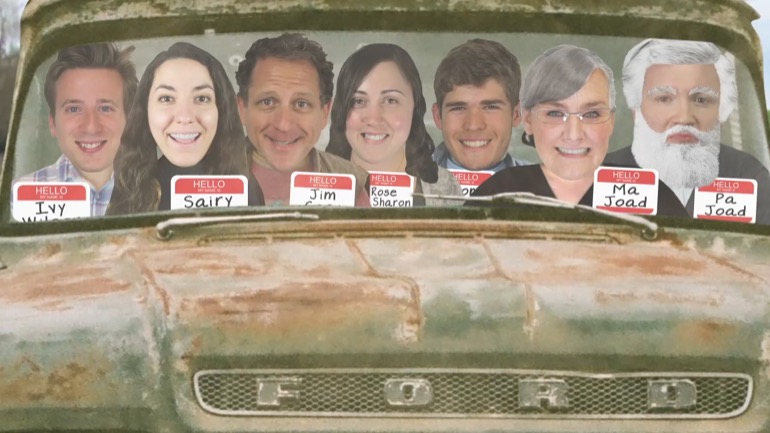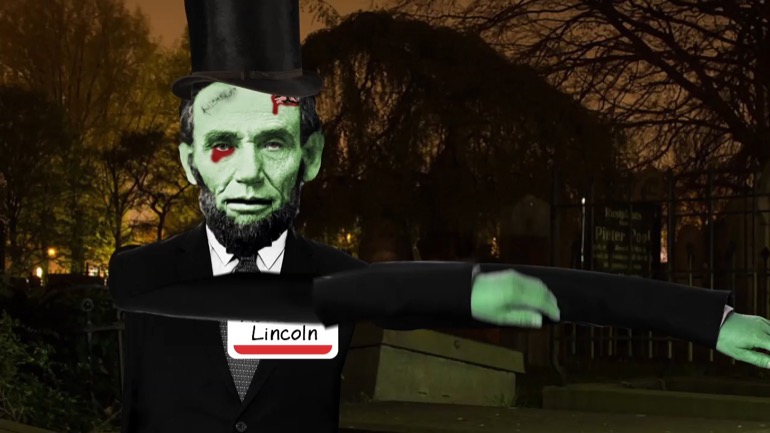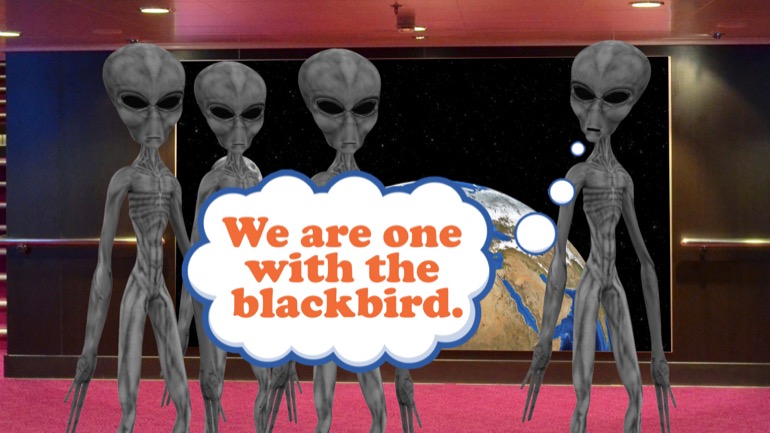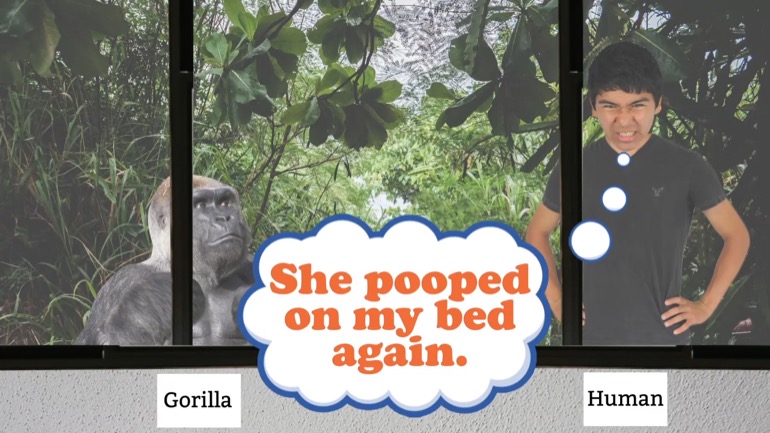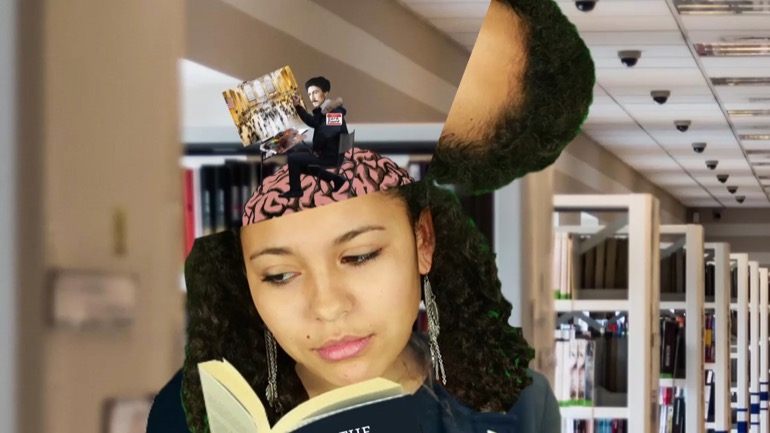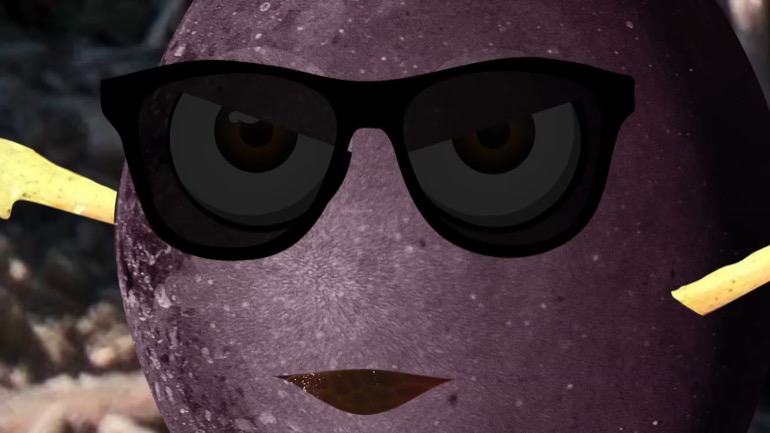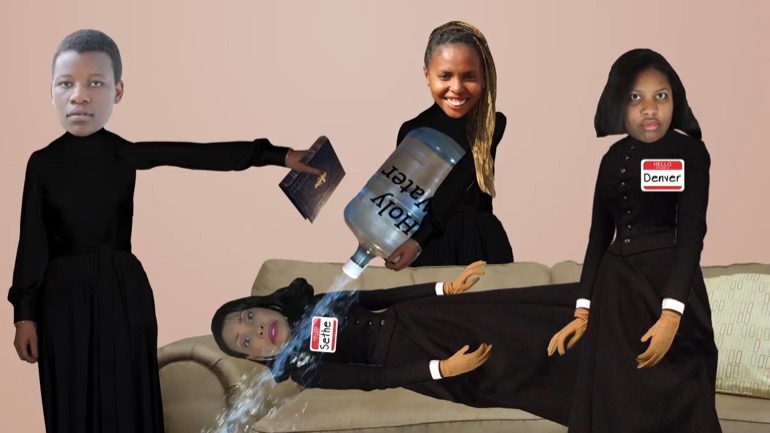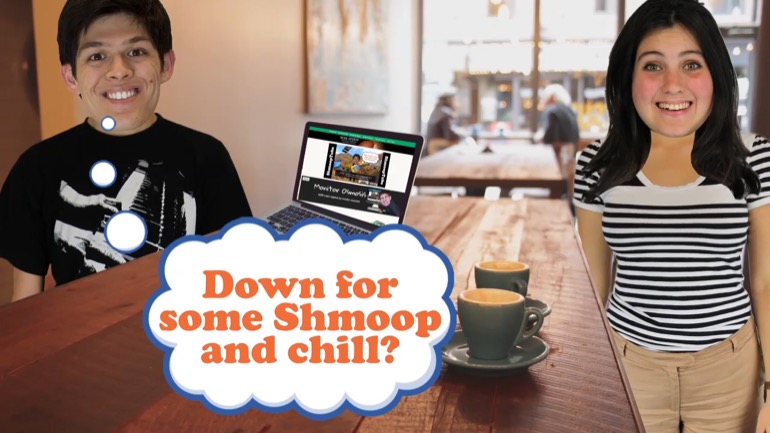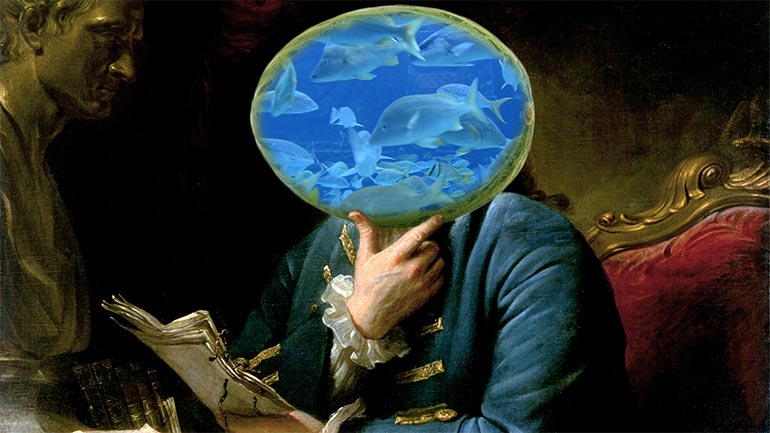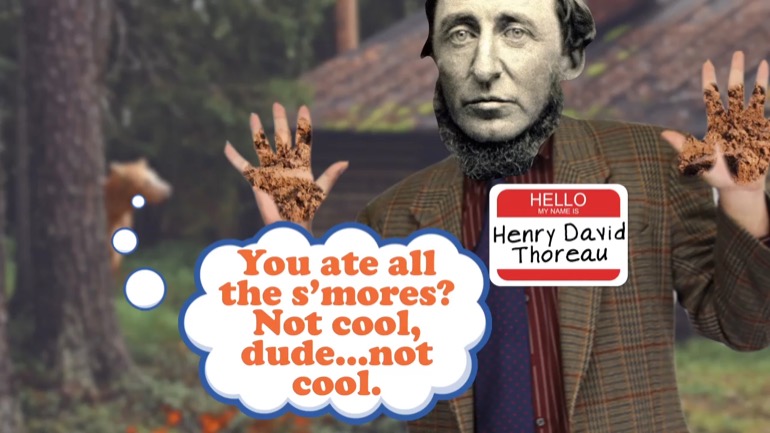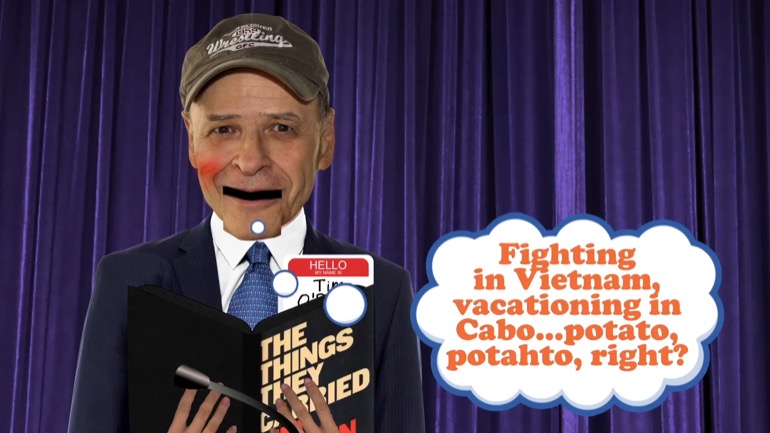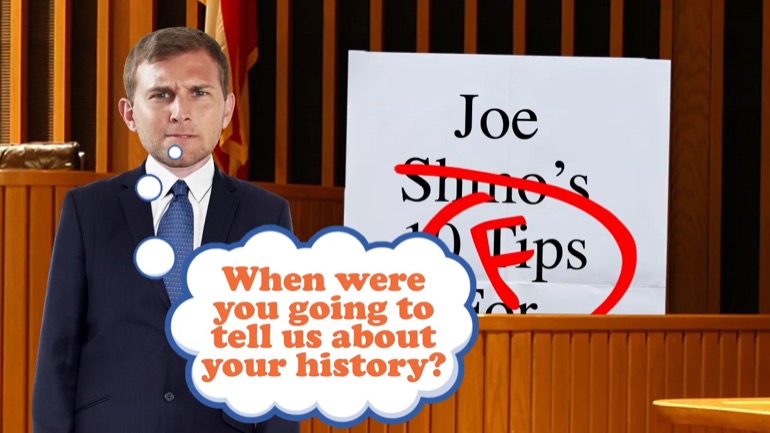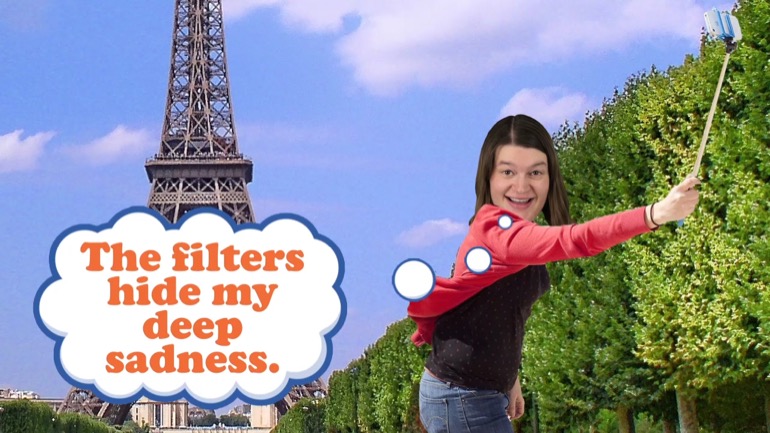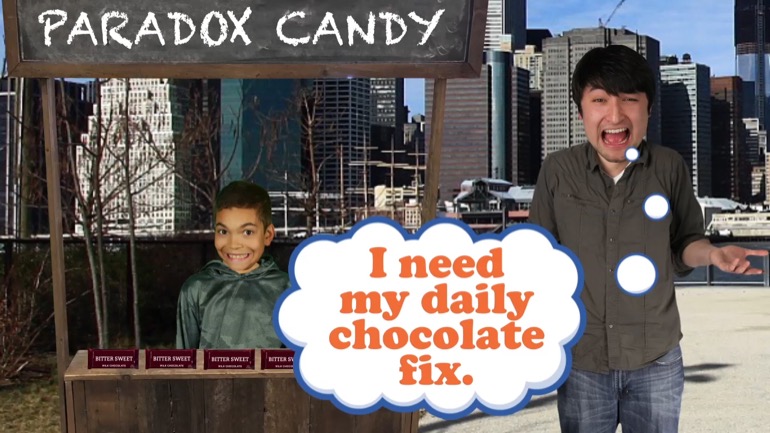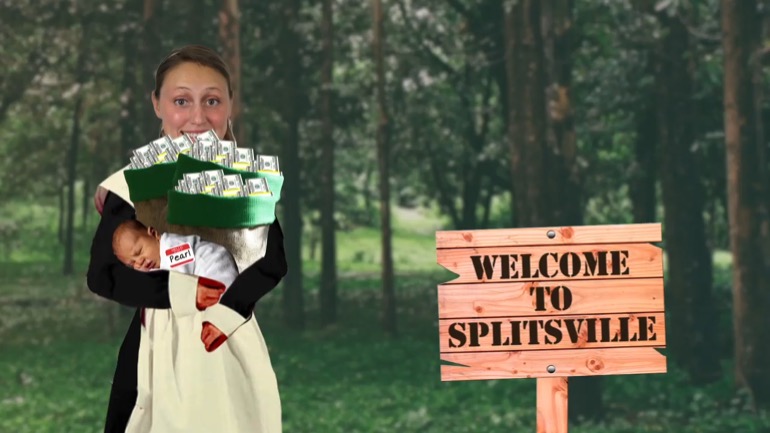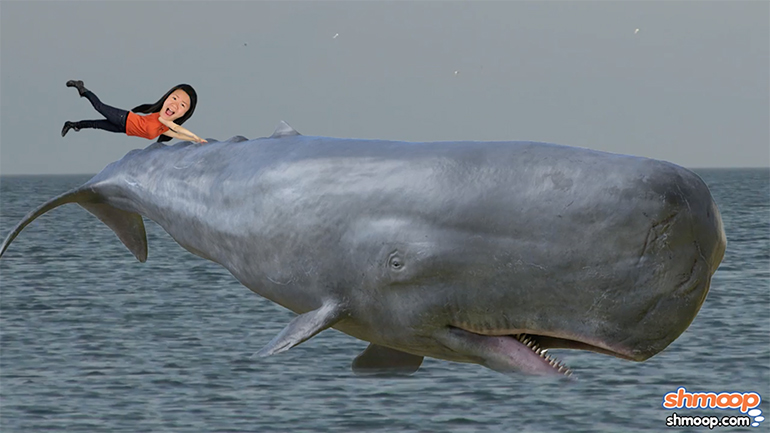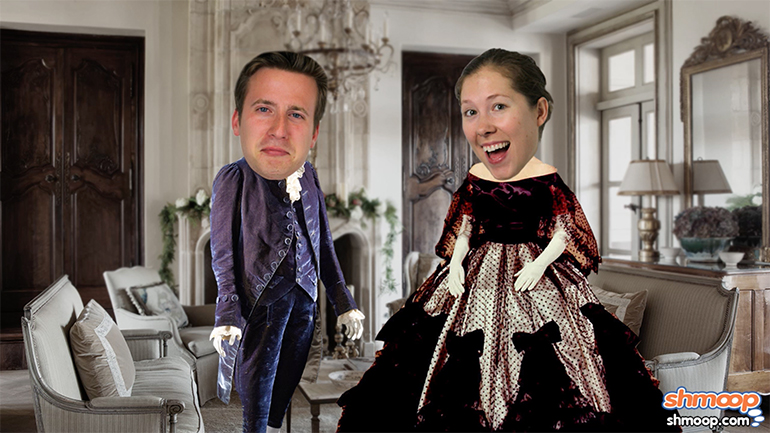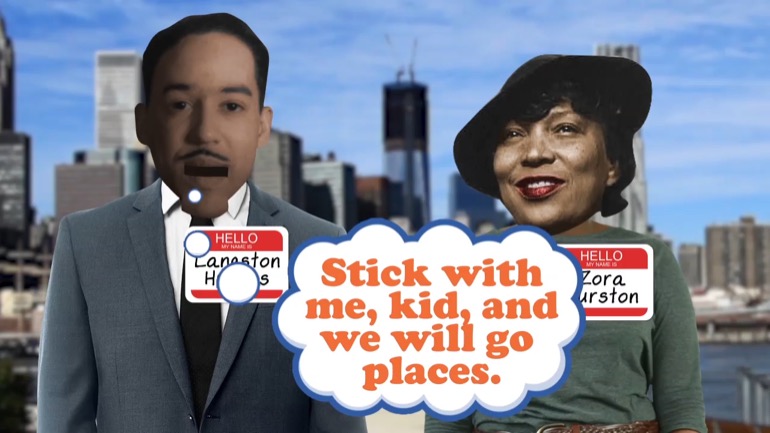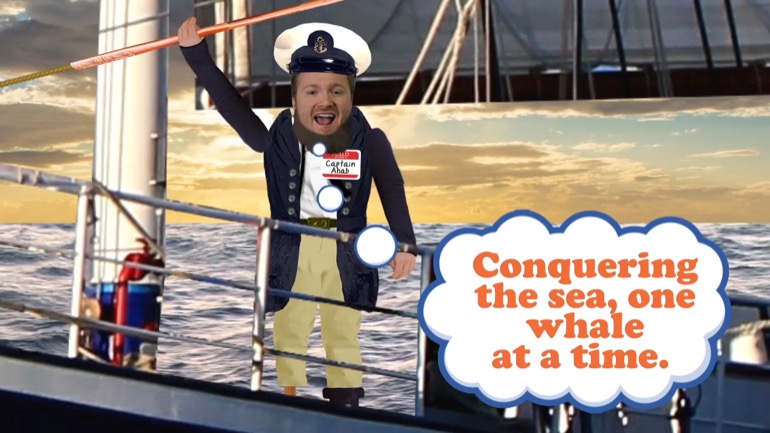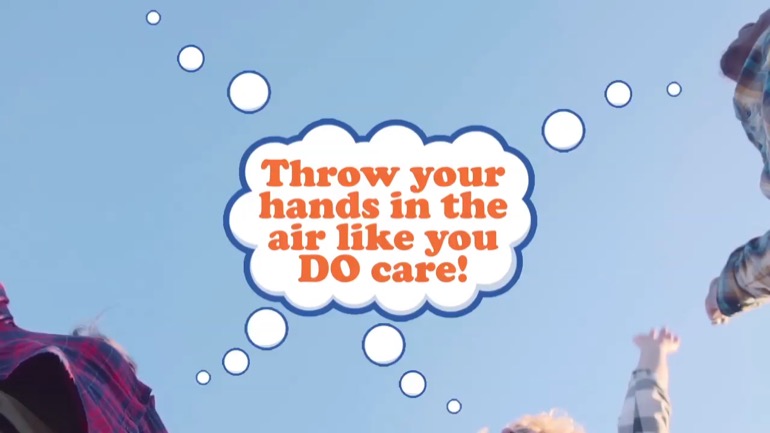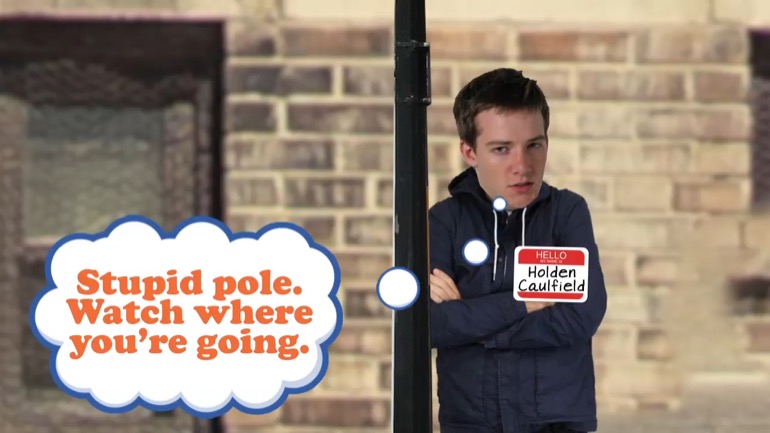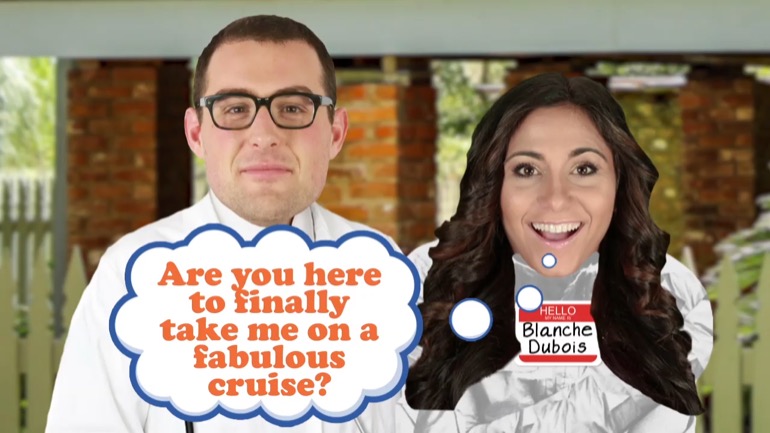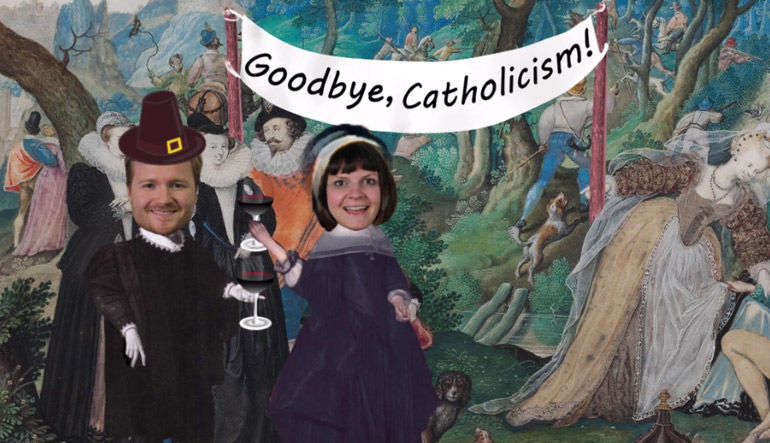ShmoopTube
Where Monty Python meets your 10th grade teacher.
Search Thousands of Shmoop Videos
Courses Videos 906 videos
What do you get when the guy who wrote “The Raven” makes a serious effort to write in verse? Poe-try… Now, when you’ve detached your eyes f...
Incidents in the Life of a Slave Girl, abridged. Ready? Go.
Emily Dickinson: Along with Van Gogh, proof that you’re never really famous until you’re dead.
American Literature: A Quilt of a Country 2263 Views
Share It!
Description:
Time to discuss Annay Quindlen's "A Quilt of a Country." We're going to wrap ourselves up in a cozy quilt to do so, and we highly suggest you do the same.
Transcript
- 00:02
A quilt of a country......
- 00:26
okay it's early in [USA quilt talking]
- 00:28
an American literature course and we just finished covering the Declaration
- 00:32
of Independence and the Constitution so guess we're probably going to move on to
- 00:36
some other old-tiny document written on parchment where all the S's looks
Full Transcript
- 00:41
like F's right? nope we're actually going to leap ahead more than 200 years and
- 00:47
look at an article that was published in Time magazine in 2001...Bet you didn't [Time magazine 2001 edition appears]
- 00:51
see that coming eh and I still got some tricks up my patches all right next
- 00:56
question why why are we reading it what does this article have to do with [Person giving Uncle Sam bottle of milk]
- 01:00
America's formative years why not just leap all the way to Harry Potter the
- 01:04
Deathly Hallows and be done with it well because this particular article has a
- 01:08
lot to say about who we are as a nation where we come from, how we've grown over
- 01:12
the centuries and what we can learn from our past yeah it's almost like there's a
- 01:17
connection between the stuff people wrote and thought about hundreds of [Thomas Jefferson and modern man wearing helmets]
- 01:20
years ago and the stuff they write and think about today weird...
- 01:24
goes along with the whole why should we care thing that we keep harping on just
- 01:28
because people used to wear powdered wigs and breeches and sign checks with [Man from the past signing with a quill]
- 01:31
quill pens doesn't mean they weren't roughly the same folks we are...We had the same
- 01:35
worries, joy's, fears, doubts and passion and they grieve the same way we grieve
- 01:40
yeah we're about to get serious if you have any light-hearted puns you want to
- 01:44
put out into the universe now's a good time to get them off your chest..Ana [Man dressed as sailor on a boat]
- 01:47
Quinlan's article a quilt of a country was written two weeks after the New York
- 01:51
terrorist attack that devastated the twin towers and resulted in the deaths of
- 01:54
3,000 innocent people yeah this thing was opposite of a fluff piece
- 01:58
despite the subject matter though Quinlan's article was hopeful we'll get
- 02:03
to what it all meant in a sec but for now just ask yourself how would our
- 02:06
founding fathers have responded if 9/11 had happened on their watch what bound
- 02:10
people together as the United States was gaining its footing and what binds
- 02:14
people together today and finally have we grown have we gradually come together
- 02:18
as a united country over time or have we drifted further apart...
- 02:22
alright now before we jump into the article a quick note about reading [Time magazine on a duvet]
- 02:26
modern text as opposed to old yellowed ones you might be thrilled to death
- 02:29
we're about to read something that was written recently something that won't be [Man on rollercoaster with grim reaper]
- 02:33
riddled with strange looking words like quartering and brethren and all sorts of
- 02:36
oddly placed apostrophes but bad news modern texts have their own set of challenges
- 02:41
The words themselves may look more or less familiar but contemporary stuff
- 02:45
tends to experiment more with sentence and language structures like writers
- 02:49
used to have long flowing sentences that ran seamlessly together whereas today
- 02:53
they like to mix things up for short choppy sentences or expectations by
- 02:57
using unusual turns of phrase and so on you could still find out those classic
- 03:01
literary techniques at play, like inference where an idea is suggested or
- 03:05
hinted at but not said explicitly allusion where an expression makes the [Classic literary techniques examples]
- 03:09
reader think about something similar or related and pretty much any other
- 03:12
artistic device under the Sun that would be a cliche yeah you'll find those too...
- 03:16
as with old texts the job is still roughly the same read it a few times [USA quilt discussing old texts]
- 03:21
first to respond on a gut level then to summarize and finally to analyze so
- 03:25
before I run this thing through our mental shredder and then attempt to put [Time magazine goes through brain shredder[
- 03:29
it back together again keep one pass through just to read and
- 03:32
enjoy don't even worry about understanding every little concept let
- 03:35
the words and the author's emotions wash over you like you're on a beach and it's
- 03:39
high tide and all of your friends are screaming at you to get back to the car [Man laying on beach and friends shout to get back in the car]
- 03:43
well okay maybe it's still low tide whatever works for you....
- 04:13
done reading for pleasure great now go back and read it for a displeasure
- 04:18
okay you can still enjoy it but now focus on understanding what this great
- 04:22
piece of writing means....summary time let's start by trying to recap each [Clock ticks and article appears on desk]
- 04:29
paragraph in just a single line alright first paragraph Quinlan is talking
- 04:33
about America being a mongrel nation built of ever-changing disparate parts
- 04:36
well a mongrel is either a dog that's a mutt probably not what she's going for or
- 04:41
a person of mixed descent ah there we go so she's saying were a country made up
- 04:45
of people from all over the place in the same breath she says were held together
- 04:49
by the notion that all men are created equal so yeah she's driving home the
- 04:52
point that we might be different but we're all in this boat together and then [People of US standing on Noah's Ark]
- 04:56
we get our first and only quilt shout out ah there's where we figure out why
- 05:01
the author settled on this particular metaphor she's saying that America like
- 05:04
a quilt is built of bits and pieces that seem discordant so you got this whole
- 05:09
patchwork of random stuff but when you stitch them all together boom a quilt or [A quilt of the USA flag]
- 05:14
a country whatever so how would we sum up this paragraph? we'll want to
- 05:18
incorporate everything we just mentioned how about like a quilt, America is a
- 05:22
patchwork of unique individuals with different backgrounds all of whom
- 05:25
contribute equally to the nation's diversity cool moving on in the second
- 05:29
paragraph there's an immediate gear shift the reality is often quite [Second paragraph highlighted]
- 05:33
different Quinlan says and then harshes our buzz by bringing up slavery,
- 05:37
sweatshops, burning crosses you know all that fun stuff so while we have all this
- 05:42
wonderful diversity we've proven throughout our history that we don't
- 05:46
always appreciate what we have but silver lining she goes on to say that
- 05:50
amid all the failures is something spectacularly successful she doesn't
- 05:55
explain herself yet except to say that in the wake of 9/11 the incredible
- 05:59
tragedy has caused people to reflect on their blessings so a recap sentence [Summary of second paragraph appears]
- 06:03
might be something like our nation's history has been rife with tragedy and
- 06:06
injustice but it is often in the face of such hardship that we become more
- 06:10
appreciative of the good third paragraph Kinlan says that our nation was founded
- 06:15
on a conundrum ie something that's at odds
- 06:18
with itself like a vegan who's trapped inside a meat locker [Vegan man inside a meat locker]
- 06:22
what is that conundrum well that our nation has a strong focus on both
- 06:26
community and individualism and it's kind of hard to do both are we out for [Man celebrating]
- 06:30
ourselves are we out to serve our neighbors who come first and maybe most
- 06:34
importantly if the roles were reversed what our neighbors do the same for us [Neighbor appears at the door with a pizza]
- 06:38
that we seek to do for them for the rest of the paragraph were treated to a
- 06:42
personal anecdote about the author's childhood where she was already well
- 06:45
aware of how splintered the community was dividing clearly along ethnic lines [Street with different ethnicities either side]
- 06:49
to sum up we can say America's defining ideals of community and individualism
- 06:54
are frequently in conflict leading to a sharp and obvious division between
- 06:58
ethnic groups next one here Quinlan's asking quite a lot of questions so she's
- 07:03
basically setting up the second half of her article which we hope will provide
- 07:08
some answers what is the point of this splintered whole.. she asks, she also asked
- 07:11
how can it be that we all live on the same bit of land interact with one [Man saying hello to woman walking by]
- 07:15
another even help each other get around and survive and yet at the same time we
- 07:19
claim to hate one another, often coming to blows or worse but she says
- 07:24
other countries that become that divided actually divide in other words they
- 07:28
become two countries not the US though not yet anyway so for this paragraph we
- 07:34
can say it's hard to imagine the reason that despite all the words and acts of
- 07:38
hatred aimed at one another we remain united as countrymen paragraph number
- 07:43
five we get a bit of a history lesson here our disparate parts tend to be held
- 07:47
together by a common enemy by the fault lines of world wars and the electrified
- 07:51
fence of communism so yeah she's saying that for a long time we could kind of [Static on a TV screen]
- 07:55
set aside all our internal squabbles because we had wars to fight and obvious
- 07:59
enemies to defeat but once all that stuff was over well people were kind of [Person cooking burgers on a barbecue]
- 08:02
worried that our personal problems would come to light and tear us apart but they
- 08:07
didn't we retained our national identity how does Quinlan know that's true at the
- 08:11
end of the paragraph she references terrorism bringing it back to 9/11, it
- 08:15
was an awful day one of the worst in our history no doubt about it [Twin Tower aftermath rubble]
- 08:19
but the fact that we were able to pull through it together spoke volumes about
- 08:23
who we were as a country of Americans let's summarize by saying even when we
- 08:28
are not facing a common enemy Americans have proven that they can
- 08:32
overcome ethnic differences to stand together in times of tragedy all right
- 08:36
let's keep it rollin the next paragraph cites a survey in which nearly everyone
- 08:40
seemed able to get on board with the idea that the US is a unique country
- 08:44
that stands for something special in the world maybe it stands for unique and
- 08:48
[Russia flag appears] special but yea Quinlan goes on to suggest that there's the undercurrent of
- 08:52
a philosophy running through American culture which basically says hey
- 08:56
America's diverse always going to be that way you might be one country but
- 08:59
we're always going to be divided our national character takes a hit because [Boxer punches statue of liberty]
- 09:03
how can we ever have a single identity with so much disparity, Batman knows
- 09:07
what we're talking about he never could swing the single identity thing ever [Batman stood in his cave]
- 09:11
so in short this paragraph is saying Americans have learned to live together
- 09:15
but because of the lines drawn due to ethnic and cultural differences it is
- 09:19
difficult to define a single overarching national character okay we're getting
- 09:24
there paragraph number seven proposes two [Paragraph 7 highlighted]
- 09:26
reasons why we might actually be a united people able to accept immigrants
- 09:31
despite what she said in the previous paragraph first there's just something
- 09:35
about the American psyche that loves the the difficult, the demanding that sees
- 09:39
mastering the impossible as a test of character so rather than be bummed out
- 09:44
that we have to cohabitate with all these others we see it as a challenge [People sitting on a boat]
- 09:48
for us to meet head-on and to overcome and second there's a grudging fairness
- 09:52
how generous, that leads most to admit that the new immigrants are not so
- 09:56
different from our own parents or grandparents well yeah if our ancestors
- 10:00
never came over on a boat we wouldn't be here so how can you hate on somebody [Ancestors sailing a boat to the US]
- 10:04
who's doing the same thing recap despite their issues with immigrants other
- 10:08
Americans are able to feel a sense of unity with them because for one thing
- 10:12
they look at the challenge of accepting differences as a test of their character
- 10:16
and for another they recognize that they came from immigrants themselves okay
- 10:21
final paragraph - Quinlan takes issue with the word tolerance we're not tolerating
- 10:26
immigrants like they're an in-law who's staying at our house for three more days [Father-in-law walks in to room]
- 10:29
so she feels a more fitting word is patriotism in the sense that we take
- 10:33
pride in our unlikely ability to throw all of us together in a country that is
- 10:37
different as a dozen countries and still able to call
- 10:40
it by one name and of course she's got to bring it back around to the World
- 10:44
Trade Center and the attack and our mongrel nation the faces that looked upon [Man helping survivor of terrorist attack]
- 10:48
all that devastation and sadness of that day were all different colors but the
- 10:53
sadness and the determination written clearly on every one of those faces
- 10:57
formed a single spirit to sum up American patriotism allows us to do more
- 11:02
than just tolerate our immigrant countrymen but to truly unite thanks to
- 11:06
our shared experiences and common spirit interestingly no more mentions of the
- 11:11
quilt metaphor all she had to do was throw it out there once and the point
- 11:14
was made all right believe it or not we can go even deeper into this thing so [Quilt of US flag discussing article]
- 11:19
now that you understand what the article is saying, read it one last time and
- 11:23
give it a thorough analysis ask yourself some of these questions...
- 11:27
what is Quindlen's overall claim how does she support that claim
- 11:30
to what extent does the reality of American and Americans live up to the
- 11:35
ideals within declaration in the Constitution why does Quindlen think we
- 11:40
should even strive for out of many one how do you think Quindlen would feel about
- 11:44
our view and treatment of immigrants today compared to back in 2001 has it
- 11:50
gotten better, worse or stayed the same and these are just some starter
- 11:54
questions I'm sure a bunch more will occur to you as you go if nothing comes
- 11:58
to you that's alright too I didn't mean to send you on a quilt
- 12:01
trip [Quilt of US flag telling a joke]
Related Videos
“Happy Hunger Games!” Or not. Katniss’s Hunger Games experiences left a not-so-happy effect on her. This video will prompt you to ponder if...
Who's really the crazy one in One Flew Over the Cuckoo's Nest? Shmoop amongst yourselves.
Sure, Edgar Allan Poe was dark and moody and filled with teenage angst, but what else does he have in common with the Twilight series?
¿Por que es el 'Gran' Gatsby tan gran? ¿Porque de su nombre peculiar? ¿Porque de el misterio que le rodea? Se ha discutido esta pregunta por muc...
Would would the world be like without books? Ray Bradbury tackles that question—and many more— in Fahrenheit 451. Go ahead; read it on your Kin...
